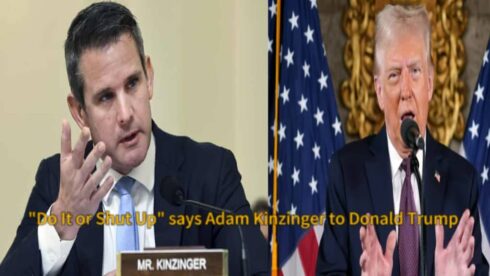Donald Trump has once again ignited a political firestorm, this time by declaring that he will void President Joe Biden’s pardons granted to members of the January 6 Committee. This claim, made on Truth Social, is not only legally baseless but also an extraordinary overreach of presidential power. Donald Trump’s statement asserts that the pardons are “VOID, VACANT, AND OF NO FURTHER FORCE OR EFFECT” because they were signed using an autopen—an argument that legal experts quickly dismissed as absurd.
Presidential pardons are considered absolute once granted, and no legal mechanism allows a future president to retroactively nullify them. Constitutional scholars point out that Trump’s assertion contradicts centuries of legal precedent. His threats, they argue, are not grounded in law but in his ongoing effort to discredit the committee that investigated his role in the January 6 insurrection.
January 6 Committee Responds: “Do It. Or Shut Up.”
Members of the now-defunct bipartisan committee did not hold back in their response to Donald Trump’s threats. Former Republican Congressman Adam Kinzinger, who played a key role in the investigation, dismissed Trump’s bluster, writing on Substack, “Fine. Do it. Or shut up.” His words reflect a broader sentiment among committee members who see Trump’s threats as politically motivated noise rather than a legitimate legal challenge.
Congressman Jamie Raskin echoed this defiance, emphasizing that the committee’s work remains unchallenged on a factual basis. “Despite their threats, no one has laid a glove on a single factual statement in our report,” Raskin told The Hill. His statement underscores the committee’s confidence in the integrity of its findings, despite Trump’s continued attacks.
The Legality of Presidential Pardons: Donald Trump’s Bluff Exposed
Donald Trump’s claim that Biden’s use of an autopen invalidates the pardons is legally unsubstantiated. The autopen, an automated signing device used by presidents for decades, has been recognized as legally binding in official documents, including legislation and pardons. Legal analysts argue that Trump’s attempt to challenge this practice lacks any constitutional foundation.
Harvard Law professor Laurence Tribe called Trump’s argument “pure fiction,” noting that no president has ever had the authority to revoke a predecessor’s pardons. “If Trump truly believes he can void past pardons, he’s either delusional or deliberately misleading his supporters,” Tribe said. This latest controversy seems to be more about political theater than any genuine legal maneuver.
Donald Trump’s Obsession with the January 6 Committee: A Pattern of Retaliation
Since leaving office, Donald Trump has repeatedly sought revenge against those who held him accountable for the Capitol riot. His attacks on the January 6 Committee align with his broader strategy of discrediting any institution that challenges his narrative. From threatening federal prosecutors to promising pardons for convicted rioters, Trump has made it clear that he views the legal system as a tool for personal retribution.
Former committee member Adam Schiff, now a U.S. Senator, took to X (formerly Twitter) to call out Trump’s intimidation tactics. “The members of the Jan 6 Committee are all proud of our work. Your threats will not intimidate us. Or silence us,” Schiff wrote. His statement reinforces the committee’s position that Trump’s threats are empty and legally indefensible.
Political Fallout: How Trump’s Base and Rivals Are Reacting
Trump’s latest outburst has energized his most loyal supporters, who see his threats as a sign of strength and defiance against what they believe to be a corrupt political establishment. However, within the broader Republican Party, reactions have been more measured. Some GOP lawmakers, wary of Trump’s legal troubles, have avoided directly endorsing his claim, instead pivoting to broader criticisms of Biden’s administration.
Meanwhile, Trump’s rivals in the 2024 election—particularly those seeking to appeal to moderate conservatives—have seized on the controversy to question his fitness for office. “A president should be focused on leading the country, not settling personal scores,” one Republican strategist told Politico. As Trump’s legal troubles mount, even some within his party are questioning whether his fixation on the January 6 investigation is becoming a political liability.
The Bigger Picture: Trump’s Legal Future
Trump’s threats to revoke pardons may be legally hollow, but they highlight his growing desperation as multiple criminal cases were recorded. His efforts to rewrite the history of January 6 and punish those who held him accountable suggest that, has he is reelected, he will use the full power of the presidency for personal vengeance.
As the legal battles continue, Trump’s rhetoric will likely become even more extreme. However, as the January 6 Committee members have made clear, they are not intimidated. With the rule of law on their side, their message to Trump remains simple: “Do it. Or shut up.”














